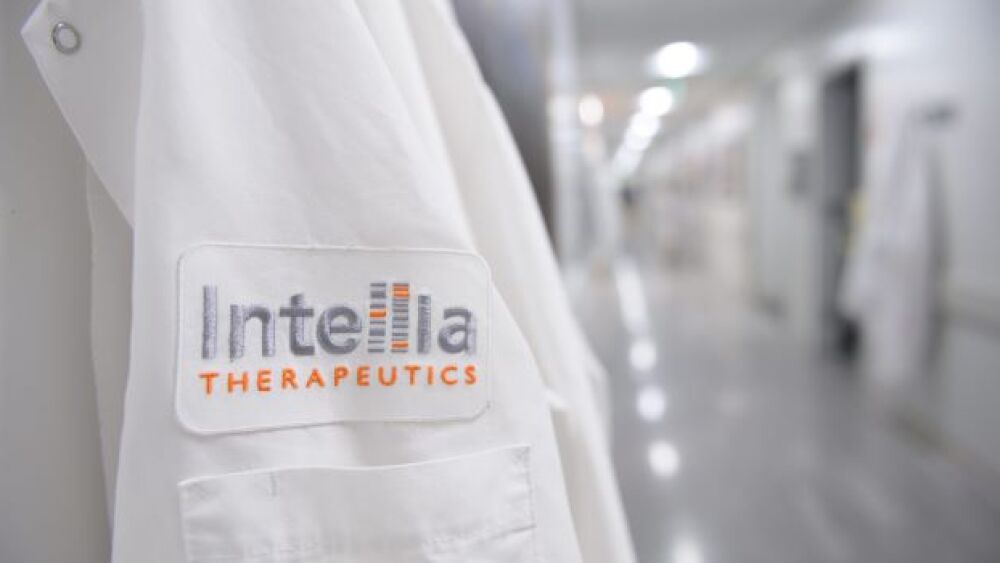Intellia Therapeutics released its strategic priorities for 2023-2024 Thursday, with a heavy emphasis on advancing its lead asset NTLA-2001 as a potential functional cure therapy for ATTR amyloidosis.
Courtesy photo
Intellia Therapeutics released its strategic priorities for 2023-2024 Thursday, with a heavy emphasis on advancing its lead asset NTLA-2001 as a potential functional cure therapy for ATTR amyloidosis.
Intellia is based in Genetown; Cambridge, Massachusetts.
Intellia’s news piques interest for a few reasons: onlookers broadly view NTLA-2001 as a barometer for CRISPR gene editing as a whole. It is the only CRISPR therapy to be administered intravenously to edit a gene. In this case, it’s working to ameliorate ATTR amyloidosis, a condition linked to abnormal deposits of transthyretin (TTR).
When TTR deposits aren’t properly eliminated by cell metabolism, they affect organ function. In ATTR amyloidosis, the proteins cause stiffness and often thickening of the heart’s walls, precipitating organ failure.
NTLA-2001 is an investigational therapy for treating ATTR amyloidosis and Intellia’s lead asset. Thus far, the data pursuing it as a novel target have been impressive.
More broadly, NTLA is a potential barometer for the Nobel Prize-winning CRISPR technology as a whole. Intellia remains the first company to post encouraging early-stage data in indications other than monogenic blood disorders like sickle cell and beta thalassemia.
Intellia President and Chief Executive Officer John Leonard, M.D. said in a statement the company’s work thus far in gene editing provides a promising harbinger for the next two years.
Moving into 2023, Intellia will prioritize initiating “global, pivotal trials for our first two investigational in vivo CRISPR-based therapies, NTLA-2001 for ATTR amyloidosis and NTLA-2002 for hereditary angioedema.”
After ending 2022 in a robust financial position, with $1.3 billion in cash on hand, Intellia is in a solid position to focus on its strategic goals for the next two years.
In more granular detail, Intellia listed its pipeline objectives:
- Advance new platform capabilities to the clinic, including CRISPR-based in vivo targeted gene insertion and a first-of-its-kind allogeneic cell engineering solution designed to avoid NK cell-mediated rejection.
- Lead the development of new gene editing and delivery modalities to extend the company’s technological leadership position and drive future pipeline growth.
- NTLA-2001 for ATTR amyloidosis:
- Submit an IND application in mid-2023 to enable the inclusion of U.S. sites in a pivotal study of NTLA-2001 for patients with ATTR amyloidosis with cardiomyopathy (ATTR-CM).
- Present additional clinical data from the ongoing Phase 1 study of NTLA-2001 in 2023.
- Initiate a global pivotal NTLA-2001 trial for ATTR-CM by year-end 2023, subject to regulatory feedback.
- Prepare for a Phase 3 study of NTLA-2001 for treating ATTR amyloidosis with polyneuropathy, including discussions with regulatory authorities.
Featured Jobs on BioSpace





